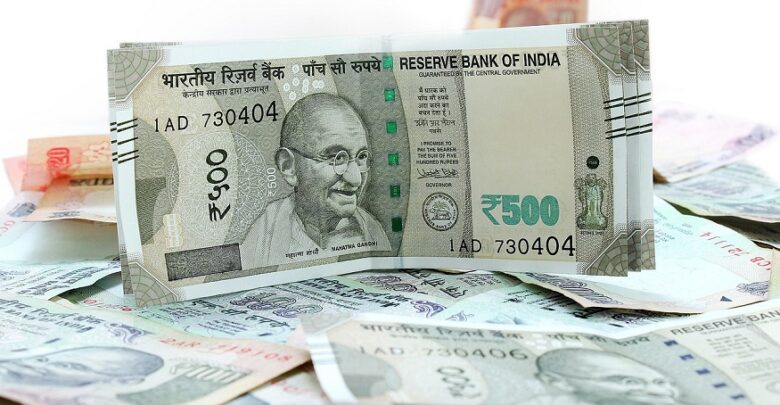Personal Loan Tax Benefits: What You Should Know

It is well known that personal loans are used most frequently to satisfy the most diverse of financial needs: they cover emergency expenses and at the same time make a fabulous wedding or house remodeling project possible. The fact that they are very flexible and easy to avail makes them appealing to borrowers who, however, take the tax aspect treatment of the loans for granted. Are you able to get some deductions on a personal loan? And if yes, what conditions have to be fulfilled?
Home loan or education loan are different cases. The situation with personal loans is that they don’t come with tax deductions automatically. Meanwhile, if the loan is used for a certain purpose you can be qualified for the tax benefits allowed in the relevant sections of the Income Tax Act.
Are Personal Loans Taxable?
Primarily, it has to be noted that the sum of the loan is not regarded as taxable income. Since the money is borrowed, it has to be repaid and cannot be included in income tax. Still, the interest that you are going to give on the loan can be treated as a deduction or not, depending on the way you decide to use the funds.
Actually, the rate of interest that is charged in the personal loan is at a lower scale is definitely going to help bring down the overall burden of your repayment but it is the purpose of the loan that is going to determine your tax saving.
When Can You Claim Tax Benefits on Personal Loans?
The Income Tax Act doesn’t talk about the issue of personal loan interest tax deduction per se. Nevertheless, the tax office gives deductibles in certain cases if money has been borrowed for particular uses.
- Home Renovation or Construction – According to the law of income tax in India, section 24(b) is the relevant portion for the deduction of house rent if the loan was used for correction of the property. First of all, a property owner has to be a self-occupant of the house for the year to be entitled to the deduction. It is furthermore observed that if the accommodation is not let during the year, then the loss will be restricted to ₹ 2,00,000 which is the maximum amount that can be set off against income from other sources.
Make sure you keep proper records and bills to prove the cash was invested in home-related purposes.
- Business Investment (Section 37(1)) If the money that you borrowed was spent on business-related costs like purchasing equipment, expanding operations, or controlling working capital then the interest can be regarded as a business expense according to Section 37(1) This means that you can set off the interest against your business income and thus pay tax on income lower than your actual profits.
Nonetheless, you are required to keep very detailed files, including a loan agreement and business use proof, that will serve as evidence of this deduction upon assessment.
- Purchase of Assets (Capital Gains Treatment) If you invest a personal loan in capital assets such as stocks, gold, or real estate (not for construction or renovation), then you may be allowed to add the interest paid to the cost of the asset. This means that when you sell your asset, your capital gain will be calculated on a lower base since the original cost will be higher due to the increase of the asset’s cost.
This is not a direct deduction but a carry forward of the unused deduction which will be available at the time of the capital gain computation.
No Tax Benefits for Personal Use Expenses
When you spend the borrowed money on individually consumable articles and services like wedding expenses, holidays, shopping, or medical emergencies, you will not be entitled to any tax deductions for the interest or principal. Although a low interest personal loan provides a financial relief in such instances, there are no tax incentives for private non-business purposes.
What Documents Do You Need to Claim Tax Benefits?
If you want to prove your right to be given deductions, especially in a case of utilization of the loan for business purposes or improvement of the house, you should retain:
- Loan sanction letter
- Interest certificate from the lender
- Invoices, bills, or contractor agreements
- Property documents if used for home construction or renovation
- Proof of usage linked to business or asset purchase
These papers are examples of clear documentation of the money usage and hence, can make the tax assessment process transparent.
How to Declare Interest in Your ITR
When you want to get deductions:
- Write the interest in the appropriate section (24(b) or 37(1))
- Either include the interest as a business expense or deduct it from the house property income
- Provide all the supporting documents in the case of a verification or audit
Check with a tax professional so that you can report in the proper way and be sure that you follow the rules according to your income source and usage type.
Summary
Though a personal loan on its own is not taxable, it can be a source of tax benefits in certain situations. In case you are utilizing the amount for carrying out repairs to your house, or for business, or purchasing of assets, it may be possible for you to get deductions in relation to the interest amount paid. To get the most out of these benefits, select an easy personal loan with the lowest interest rate, keep all the necessary documents ready, and make sure the loan is for a purpose that is recognized in the tax code. Your loan, if used efficiently, can not only serve as an assistance for your goals but can also be a means to reduce your tax burden.




